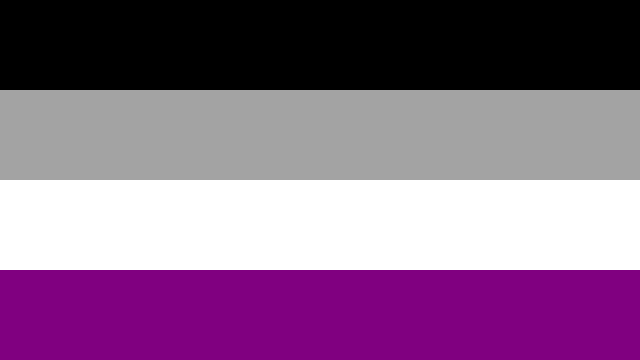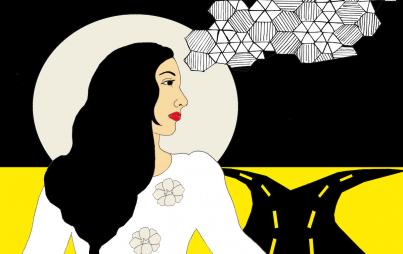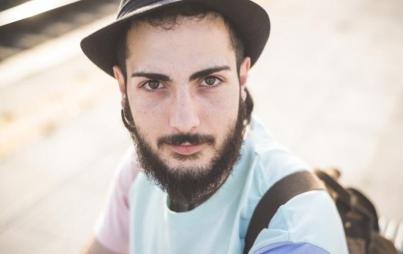
I forget, did I ask for anyone’s permission or opinion about whether or not I belong?
Not seeing my sexual identity reflected in my social networks made me question, ignore, and minimize myself for a LONG time.
At their core, people want to belong and feel purposeful. We crave connections with each other — to something larger than ourselves.
With that in mind, I said I’d write about asexual awareness and why coming out is important to some asexual people. However, it should be noted, I’m not a “resident asexual expert.”
In fact, I’m not expert on any identities other than the ones I hold and, more specifically, how those identities influence my life. I’m also pretty good at conducting exhaustive Google searches, and synthesizing my thoughts. When I started my research by Googling “asexuals coming out,” the search conjured 82,800 results in 0.65 seconds.
That was my first indication that this topic is worth discussing; it also made writing this piece feel like an insurmountable task!
Therefore, to ease the burden, this piece is about my perspectives, experiences, and research — it is not meant to be prescriptive.
Before I jump in any further, I need to say this: Coming out is a very personal decision, and if someone doesn’t feel ready or safe, their dignity and personal agency should be respected — they shouldn’t be pressured to share any more than they’re comfortable.
This piece specifically speaks to experiences of asexuality, but I also want to acknowledge that the right and safety of coming out should be extended to everyone who wants that opportunity. Finally, each person’s coming out experience will inevitably be different regardless of their identities.
Remember, everyone desires authentic connection and a space in which they belong.
So, the myriad articles and personal stories I found on Google about coming out as asexual didn’t faze me until I encountered asexual erasure followed by asexual discrimination — partially captioned below — for myself.
“‘LGBTQQIP2SAA’? Oh, I'll just say ‘the LGBTQ community’ and we’ll use ‘queer’ as an umbrella term. It's too many letters. In fact, let’s just say ‘the community.’”
I asked, to clarify, “Who's in ‘the community’?”
Instead of being told who's “in,” I was told who's definitely not “in." The answer: “Straight aces” (which is an oxymoron).
They continued, “I'm not saying they don't deserve recognition — just, they should get their own space. They don't need to infringe on this one.”
What followed was a rationale shared by many others with this perspective: “Asexual people do not experience oppression, and [...] any prejudice, discrimination or discomfort [they] experience is not ‘as bad’ [as others’].”
Nobody knew what to say after that explosion of opinions. I felt really small. I didn’t feel up for advocating. I didn’t even have the words to craft a sensible, informed statement.
In that moment, I sort of wished I was invisible.
(Taking a second here to cover my bases and recognize my privilege and positionality. OK, moving on…)
This interaction reminded me why it took so many years to feel comfortable telling people that I’m asexual, why coming out was important for me and could be for others.
I don’t identify with the heterosexual norms that have been shoved down my throat and the pathologizing rhetoric that, for most of my life, shrieked, You’re broken. I was publicly ostracized by a person who identifies as part of “the community” — the same community I feel connected to!
Aces do have their own spaces, but that's not to the exclusion of wanting to identify with the broader queer (loosely used) community.
Remember, everyone desires authentic connection and a space in which they belong.
Not seeing my sexual identity reflected in my social networks made me question, ignore, and minimize myself for a LONG time. It’s frustrating and disheartening to face similar eradication from people in a community to which I feel like — want to feel like — I belong.
Navigating persistent challenges of invisibility and discrimination by both the queer community and the heterosexual community feels like I’m a ping pong ball bouncing back and forth or a toy locked tightly in a rusty, old chest designated for misfits. I feel like a Mudblood (any Harry Potter fans?).
My sense of connection with and belonging to the queer community is in no way an attempt to appropriate or minimize the struggle, prejudice, oppression, and victories of any other sexual minorities’ identities. I can’t claim many of these experiences as my own and I’m not trying to.
This pushback by a few individuals has made the community feel, to me, more fractured than cohesive and more exclusionary than inclusionary. And, once I recognized this, I couldn’t help but notice everywhere the damaging criticisms by people who identify with the community — such as the accusations that other people aren’t “gay enough,” “trans enough,” “too gay,” etc.! I’ve experienced similar senseless inquiries about how real my identity is from other people and (sometimes) myself.
I forget, did I ask for anyone’s permission or opinion about whether or not I belong?
A high school senior said it best: “When we get in squabbles about who fits into the community and who doesn't, we only end up undermining both the community and everything we have achieved together."
Rather than insensitively debating who belongs, often without representativeness in the conversation, let’s embrace all people, create welcoming spaces, and thoughtfully engage about and across our differences. That’s all I want.
That’s why coming out as asexual is important, for me: It’s about awareness, acceptance, and cohesiveness. It’s about searching for and finding belonging — an innate human desire — and learning to embrace my authentic, imperfect self.








